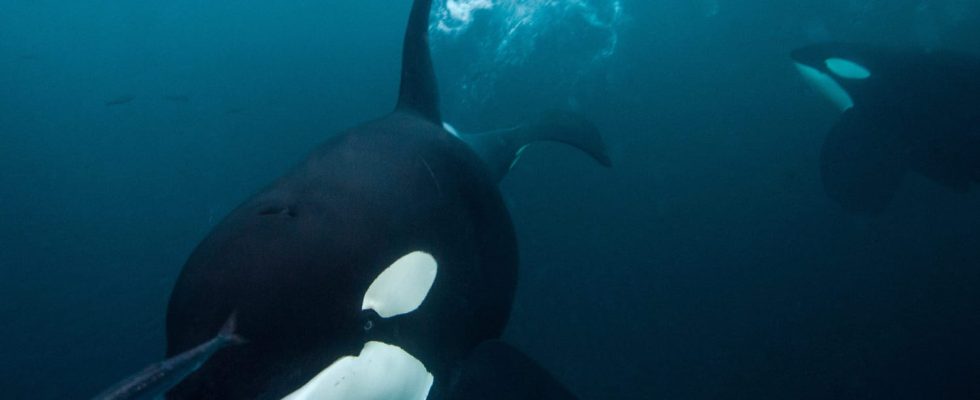207 violent interactions between killer whales and sailboats were recorded last year, dozens in 2023. If some describe attacks, scientists evoke another hypothesis.
Groups of killer whales attacking the hulls and rudders of boats. These scenes have been frequently observed off the coasts of Spain and Portugal since 2020 and shared on social networks : 207 attacks have been recorded in 2022 and at least 40 since the beginning of 2023. And it is often the same animals that seem to attack sailboats and small boats: a female, called White Gladys and several juveniles, acting in groups of three to ten killer whales.
Marks on the female killer whale’s body show the animal was injured, likely in a collision or in a trap, around 2020 when the “attacks” began. What to interpret these violent actions of the orcas of Gibraltar – also called “killer whales” – as a revenge of the cetaceans after a trauma.
Obvious revenge from the orcs?
The theory was adopted by scientists from the Task Force on Atlantic Killer Whales (ATWG) in a paper published in the journal Marina Mammal Science. However, it is far from unanimous within the scientific community. “The idea of revenge is a great story, but there is no proof,” neuroscientist Lori Marino, president of the Whale Sanctuary Project, told the BBC.
Hanne Strager, co-founder of the cetacean center in Andenes, Norway, and author of “The Killer Whale Journals”, interviewed by National Geographic, firmly dismissed the revenge theory. No aggressiveness was indeed observed by the specialist on the images she consulted. Another proof: killer whales have never attacked boaters who took refuge on lifeboats when their sailboats had been sunk by cetaceans. “If they wanted to hurt the people on the boat, they could easily do that,” also notes neuroscientist Lori Marino.
How do you explain the charges of the orcs against the boats?
According to Deborah Giles, scientific director of the organization Wild Orca, contacted by the BBC, this population of killer whales, which now numbers only a few dozen individuals, has also been the victim of human abuse and fishing for marine parks since the 1960s. Orcs have never attacked humans, however, according to her.
More than attacks, these interactions could be a new “gaming behavior” according to these scientists. Killer whale studies have shown that these cetaceans are “highly intelligent” and are “social learners”. For experts like Deborah Giles, the rudder of the boat, which is always targeted by the blows of the killer whales, must be “attractive” for the animals: “It may be something fun for them, and they will continue [à se transmettre la pratique]”. Until they get bored.
